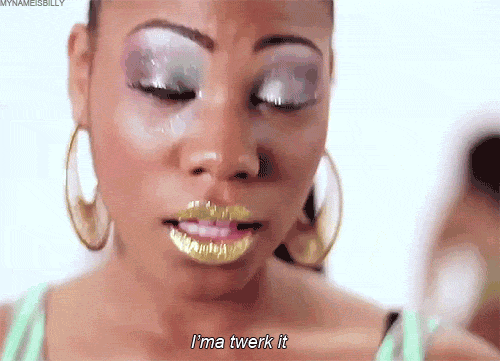SICHA, CLINTON, CYRUS: THOUGHTS ON DIVERSE DEMOGRAPHIC REPRESENTATION IN MEDIA
Choire Sicha’s first book is out. I haven’t read it yet, but it is called Very Recent History: An Entirely Factual Account of a Year (c. AD 2009) in a Large City. The book party was at the East Village gay bar “The Cock,” and I have to say I have never seen it as packed as last night, at least as a pedestrian who quickly walked past it from the outside. There will be a lot of talk about the book, because almost everyone who reads (a lot?) online knows of Sicha. The book follows a group of gay men and chronicles their lives, but for some reason I trust it to not be regressive, even before I read it. I choose to believe Salon, that it will be “among a next wave of books about gay folks as full American citizens that doesn’t bother walking them through schematic journeys meant to stand in for the American Gay Experience.”
The active endeavor to ensure the meaningful participation of diverse individuals in media is integral. It helps reach a realistic and more informed view on the specifics of a broader range of identities. However, the constant overanalyzing of public figures’ gender, race and ethnicity identification choices may end up harming the very purpose they were intended to serve: letting individuals receive merit-based recognition for their objectively high-quality work.
A recent example of excessive analyzing of such nature is that of Hillary Clinton setting up a twitter account. Since the first moment she signed up for the social media website many jokes–some witty, others offensive–have been recurring. An approach that stuck out to me as particularly idiotic was the interpretation of how she chose to order the numerous qualities that define her in her two-line bio. To assert that Hillary Clinton is “anti-feminist” because she starts her twitter bio with “wife” and “mom” before addressing her professional accomplishments, is not only naive and judgmental, it is also self-righteous and flat-out manipulative. Policing the way people choose to present themselves, and telling them they are not to be taken seriously as feminists because they prioritize differently then the average feminist is expected to (?) is childish.
Additionally, who does not know that she also has served as Secretary of State? Pure common sense makes the dialogue surrounding the topic redundant. I think this line of thinking contradicts the true sense of feminism, as in such a system of order the women are provided the agency to identify how to present themselves. What about the people who use humor in their bios? Is that unethical? Are we taking things–such as a public figure’s social media presence–that seriously, and if we are, whose fault is it?
MANIPULATIVE NATURE OF THE DISCOURSE
A piece in The Millions presented a family saga focusing on the case-hardened nature of the way identity is performed by the writer and her grandmother, who seem to fall into the trap of being defined by the social expectations their social identities in how they attain and use power.
“As mixed-race girls, we learned to take what we could from where we could to make a whole. That’s a vulnerable position to be in, susceptible to second-guessing and collapse, but it’s also a crash course in manipulation. Hence the posturing of invulnerability. The multitude of ways that my grandmother and I announced a lack of need, and presented ourselves as in solid control. We don’t need you, we projected, and therefore we may have to ignore what you need as we go about proving that to ourselves once and again. One of the only things I know how to say in Chinese is: Wo zi ze lai. I can help myself.”
After its initial appearance, the ideology of representation has slowly lost a large chunk of its significance. There are times that I feel like I am not supposed to not like non-white writing, even if some of it has to be mundane, dull and entitled. The worst is when the writing is also patronizing and borders delusional. In some ways, if the argument is reduced to powerlessness as its selling point, it cannot easily be powerful when the powerlessness is not real.
I am not Miley Cyrus’ biggest fan, but an open letter addressed to her on The Huffington Post offended me. The writer aggressively requests Miley Curys ought to stop disrespecting “what feels black.” What he means of course, is that she should stop trying to emulate the rap element that currently dominates pop culture: she is white, thus cannot and must not do these things associated with what the author considers parts of the black identity, such as twerking. To claim these as an exclusive element of black culture is silly, and certainly flawed at its core: it leads to a new separation and division among people of different races. It seems like the writer might not be comfortable with a broadly inclusive culture that is not segmented the way he views it, or at least that is what the tone of his letter indicates.
His main issue and the central issue with her is her requesting producers that she was trying to go for a vibe that “feels black.” Her creative endeavor to do that cannot be offensive. It can be successful or not. While it is difficult to decide which is the case, at the end of the video for “We Can’t Stop” she smiles wearing a grill. It is not a mocking grin, rather a smile of awareness. She knows what she is doing, and she is doing it with a sense of humor.

August 7th, 2013 / 1:21 pm



